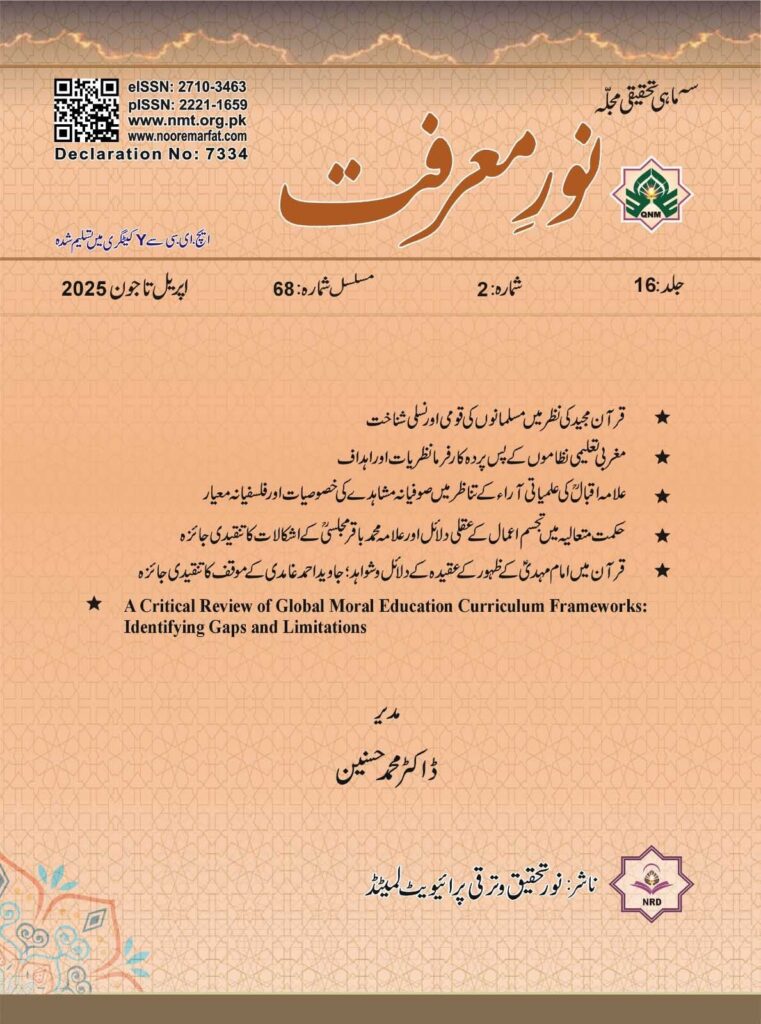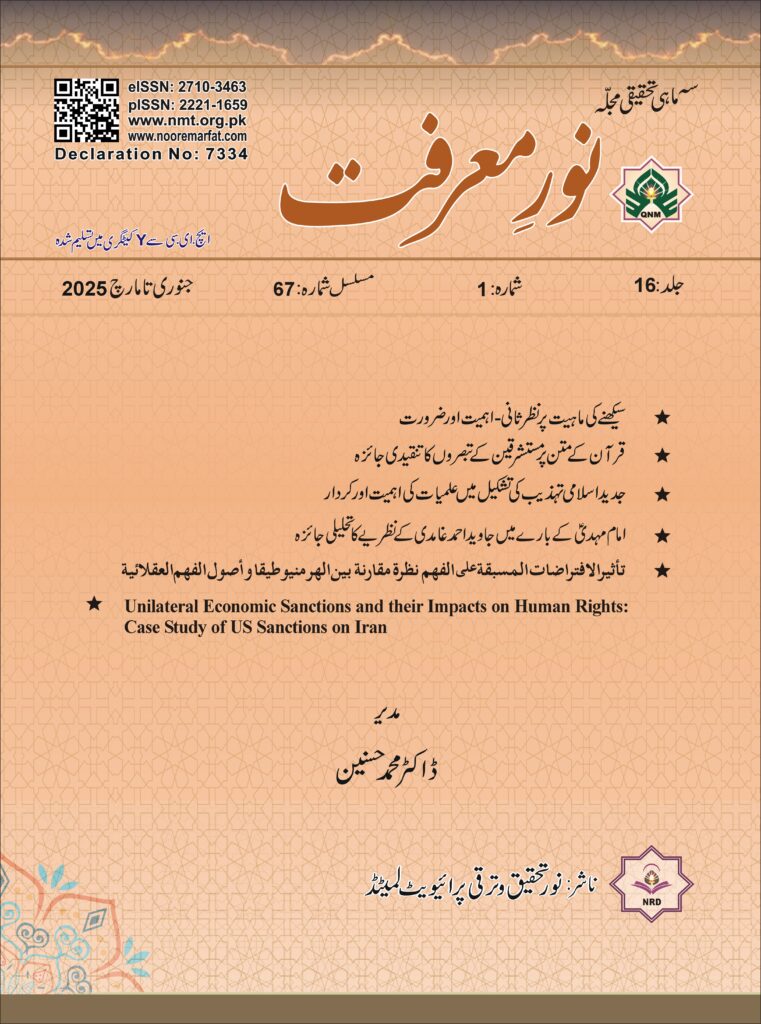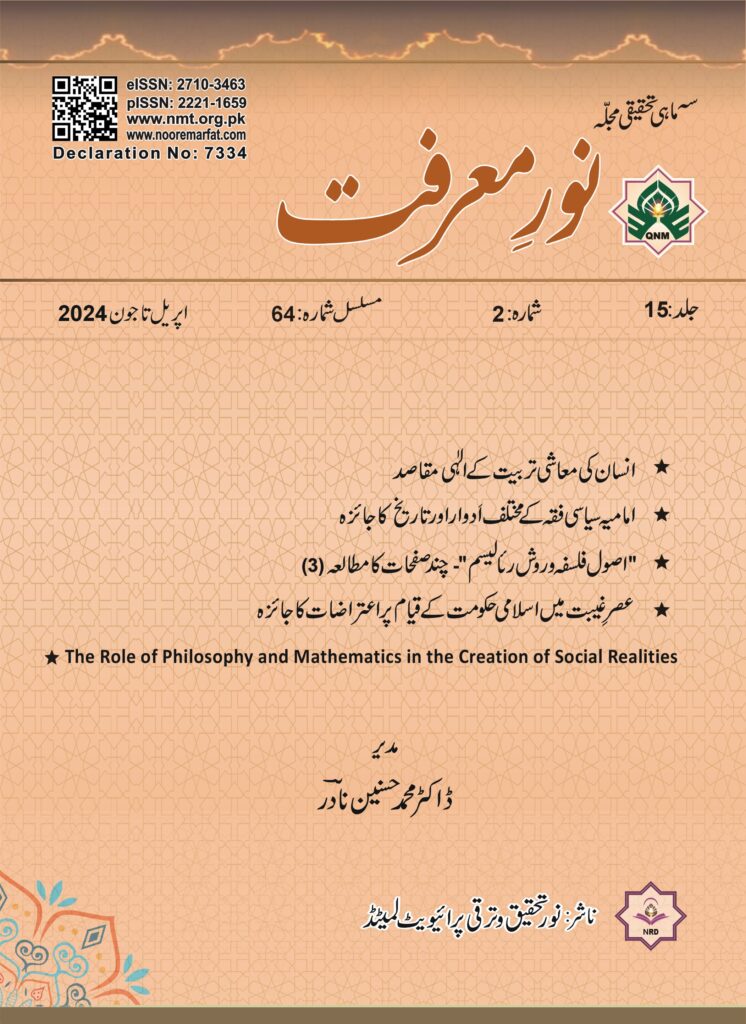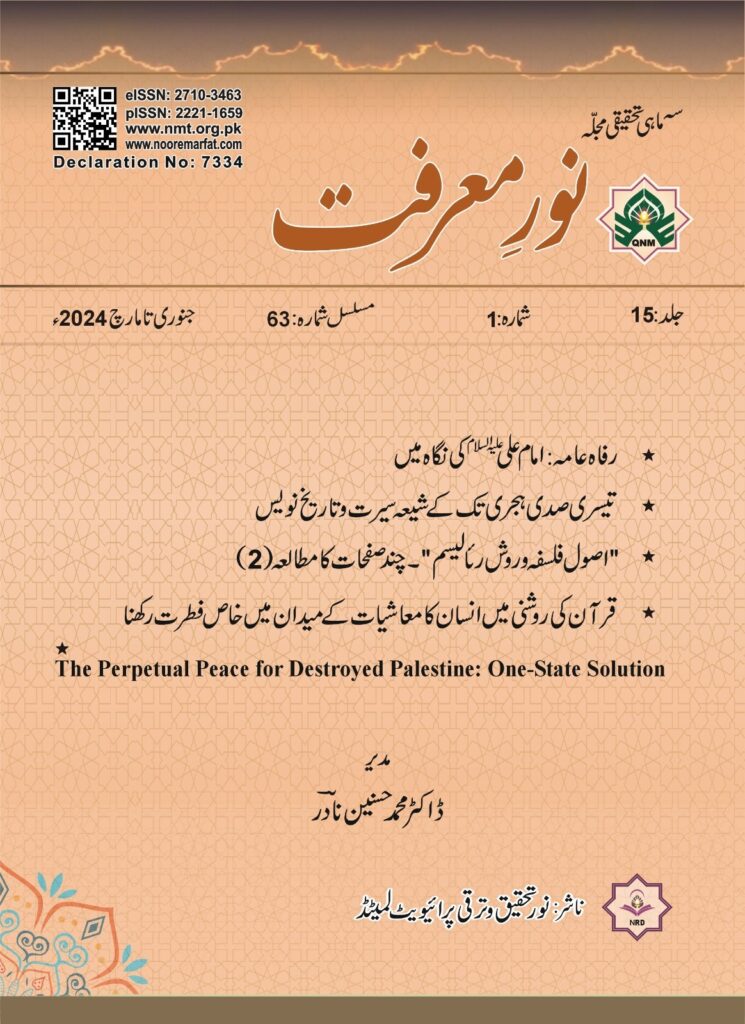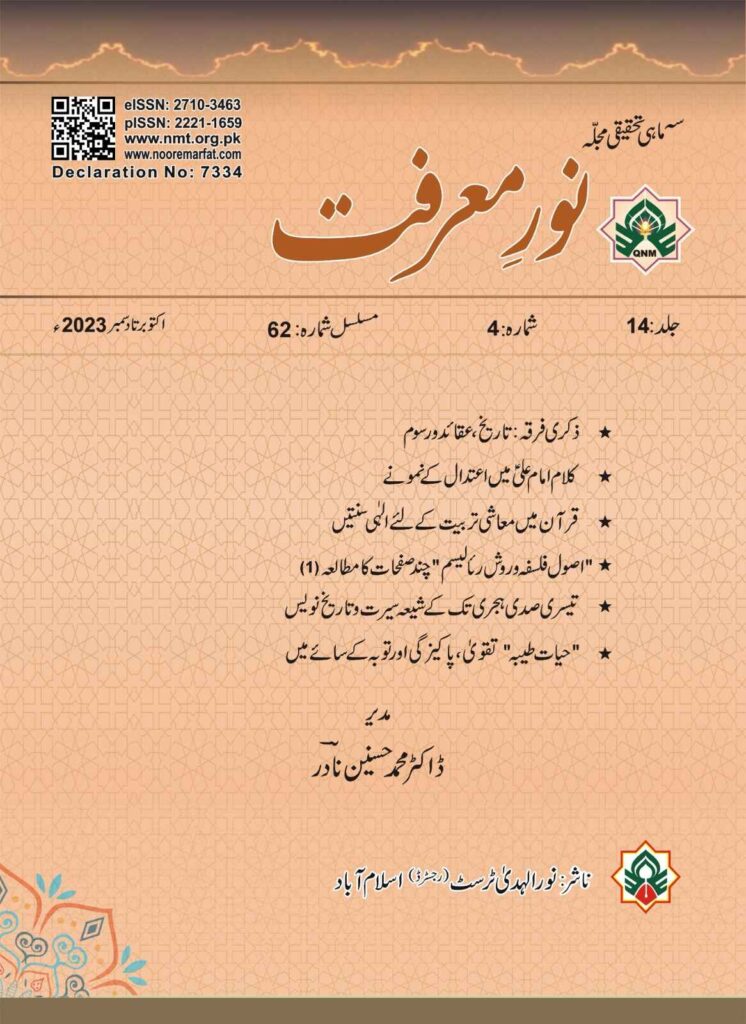شمارہ 68: اپریل تا جون 2025ء
Noor-e-Marfat 68
رکنیت حاصل کرنے کے لیے یہاں کلک کریں۔
This Issue contains 6 research articles. The first article examines the factors that shape the national identity of Muslims from the perspective of the Quran. The 2nd article examines two general issues. One, on what intellectual, philosophical and religious ideas are the educational systems prevalent in the present world based? Second, if we want to base any system of education and training on the teachings of Islam, what is its starting point? The 3rd article sheds light on the rational arguments for the embodiment of our deeds on the Day of Judgment from the perspective of Mulla Sadra’s philosophy. In the 4th article, mystical experiences and Sufi observations are presented as an important factor in the formation of Islamic civilization in the context of Allama Iqbal‘s sermons. The philosophical validity and scientific value of these experiences and observations are highlighted here. In the 5th article, while rejecting the view of the renowned religious scholar Mr. Ghamidi regarding the belief in the appearance of Imam Mahdi (AS), he presents 5 verses of the Holy Quran in support of the correctness and validity of this belief. The last article draws on research from national education systems in selected countries, including UNESCO, OECD, the United Kingdom, Japan, Malaysia, Pakistan, and Norway, to identify key gaps and challenges, which are attributed to excessive politicization, cultural non-universality, superficial treatment of moral values, and insufficient stakeholder involvement. The paper, while acknowledging the strengths of existing models of moral education, emphasizes the need for a more comprehensive and philosophically grounded approach to moral education.
Full Issue
